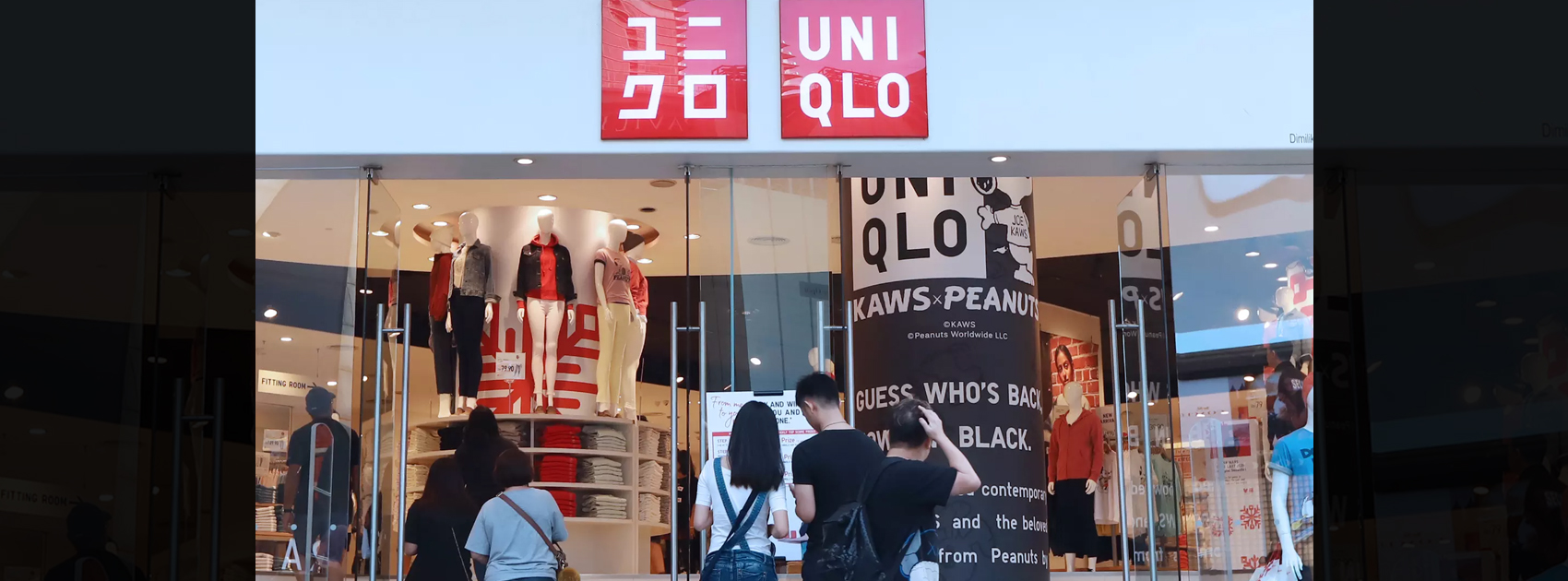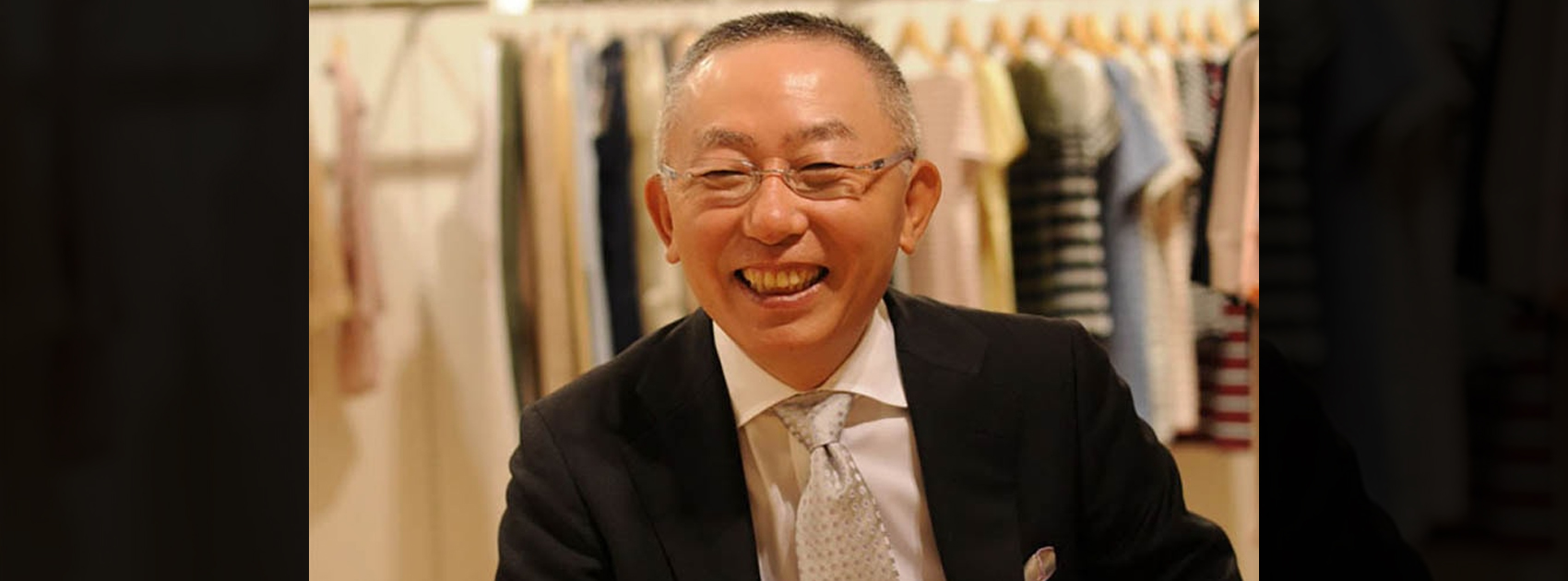News
UNIQLO Founder Takes Step Towards Women Empowerment Amid Gender Gap Issue In Japan

Tadashi Yanai, the founder and CEO of Fast Retailing Co., and its subsidiary UNIQLO, recently expressed his desire to have a woman as his successor and the CEO of his Company.
Tadashi Yanai, who owns 44 % stake in the popular retailing company Fast Retailing, was ranked the 31st richest person in the world by Forbes in June 2019. Yanai is also the richest person in Japan, with a net worth of $ 24.9 billion. He founded Fast Retailing in 1984, which grew to become the third largest clothing retailer in the world with an annual revenue of $ 18.9 billion in 2018.

During an interview, Tadashi Yanai told Bloomberg Japan he believes women are more suitable for the job of CEO as they are “ persevering, detail oriented and have an aesthetic sense.” Yanai’s statement was welcomed by everyone because it was seen as a shift from the male focused corporate world. Yanai also discussed about the future CEO of the Company and named Maki Akaida, who is currently the CEO of UNIQLO Japan, as a possible candidate.
Yanai also shared he plans to increase the ratio of female executives to more than half in his Company. The Company, in 2018, fulfilled its goal of filling 30 % of the Company’s managerial positions with women employees. It has 6 women in executive positions. Yanai also added women are reluctant to join managerial positions due to a fear of lifestyle change.
Tadashi Yanai and his Company’s efforts to ensure gender diversity have been praised heavily as latest reports show Japan is still behind when it comes to employing women in managerial positions. According to a report published by the World Economic Forum, Japan ranked 110th in its Global Gender Gap Index 2018 report. The Country has a wage gap of 24.5 % between women and men in similar positions.
This issue led Japan’s Prime Minister Shinzo Abe addressing Japan’s shrinking workforce, a part of which is to provide better quality of work and senior positions to working women.
Although it is unclear when Yanai plans to step down from his position, the effort put in by him and Fast Retailing is a positive step for women working in the corporate sector in Japan as well as globally.
News
Google Launches Startup Hub in Hyderabad to Boost India’s Innovation Ecosystem

Google has launched the Google Startup Hub Hyderabad, a major step in strengthening India’s dynamic startup ecosystem. This new initiative aims to empower entrepreneurs, innovators, and developers by giving them access to Google’s global expertise, mentoring programs, and advanced cloud technology. The hub reflects Google’s mission to fuel India’s digital transformation and promote innovation through the Google for Startups program.
Located in the heart of one of India’s top tech cities, the Google Startup Hub in Hyderabad will host mentorship sessions, training workshops, and networking events designed for early-stage startups. Founders will receive Google Cloud credits, expert guidance in AI, product development, and business scaling, and opportunities to collaborate with Google’s global mentors and investors. This ecosystem aims to help Indian startups grow faster and compete globally.
With Hyderabad already home to tech giants like Google, Microsoft, and Amazon, the launch of the Google Startup Hub Hyderabad further cements the city’s position as a leading innovation and technology hub in India. Backed by a strong talent pool and robust infrastructure, this hub is set to become a growth engine for next-generation startups, driving innovation from India to global markets.
News
BMW’s New Logo Debuts Subtly on the All-Electric iX3: A Modern Evolution

BMW quietly debuted its new logo on the all-electric iX3, marking a significant yet understated shift in the brand’s design direction for 2025. The updated emblem retains the classic roundel and Bavarian blue-and-white colors, but sharp-eyed enthusiasts noticed subtle refinements: the inner chrome ring has been removed, dividing lines between blue and white are gone, and the logo now features a contemporary satin matte black background with slimmer “BMW” lettering. These enhancements showcase BMW’s embrace of modern minimalism while reinforcing their commitment to premium aesthetics and the innovative Neue Klasse philosophy for future electric vehicles.
Unlike rival automakers that reveal dramatic logo changes, BMW’s refresh is evolutionary and respectful of tradition. The new badge ditches decorative chrome and blue borders associated with earlier electric models, resulting in a flatter, more digital-friendly design that mirrors recent branding seen in BMW’s digital communications. Appearing first on the iX3’s nose, steering wheel, and hub caps, this updated identity will gradually be adopted across all BMW models—both electric and combustion—signaling a unified brand language for years to come.
BMW’s strategic logo update represents more than just aesthetic reinvention—it underscores the brand’s dedication to future-ready mobility, design continuity, and a premium EV experience. As the new roundel begins rolling out on upcoming BMW vehicles, it stands as a testament to the automaker’s depth of detail and thoughtful evolution, offering subtle distinction for keen observers and affirming BMW’s iconic status in the ever-changing automotive landscape.
News
iPhone 17 India Price, Features & Availability: All You Need to Know

Apple has officially launched the highly anticipated iPhone 17 series in India, with prices starting at INR 82,900 for the base 256GB model. The new lineup includes the iPhone 17, iPhone 17 Pro, iPhone 17 Pro Max, and the newly introduced ultra-slim iPhone Air. Apple has removed the 128GB storage variant, making 256GB the minimum for all models. The standard iPhone 17 features a vibrant 6.3-inch ProMotion OLED display with a 120Hz refresh rate and an upgraded Ceramic Shield 2 for improved durability. It comes in fresh color options like lavender, mist blue, sage, white, and black.
The iPhone 17 Pro and Pro Max models are powered by Apple’s latest A19 Pro chip and start at INR 1,34,900 and INR 1,49,900, respectively. These Pro models feature sleek titanium frames, significant camera upgrades including 8K video recording, and up to 6x optical zoom in the Pro Max. Meanwhile, the iPhone Air, priced from INR 1,19,900, is the slimmest and lightest iPhone ever, boasting a 6.7-inch Super Retina XDR display with ProMotion technology and a triple-camera setup, positioning itself between the standard and Pro models.
Pre-orders for the iPhone 17 series commence on September 12, with sales beginning on September 19, 2025. Alongside the launch, Apple has reduced prices for the previous iPhone 16 models while discontinuing the iPhone 16 Pro and Pro Max variants. The iPhone 17 series exemplifies Apple’s ongoing commitment to enhancing display technology, camera capabilities, and overall performance, setting a new benchmark for premium smartphones in the Indian market.















Xcjygaat
May 25, 2025 at 8:46 am
Explore the ranked best online casinos of 2025. Compare bonuses, game selections, and trustworthiness of top platforms for secure and rewarding gameplaycasino slot machine.
MM88
November 6, 2025 at 2:17 am
Với giao diện mượt mà và ưu đãi hấp dẫn, MM88 là lựa chọn lý tưởng cho các tín đồ giải trí trực tuyến.
J88
November 6, 2025 at 5:36 am
Đến với J88, bạn sẽ được trải nghiệm dịch vụ cá cược chuyên nghiệp cùng hàng ngàn sự kiện khuyến mãi độc quyền.
站群程序
November 8, 2025 at 11:03 pm
搭载智能站群程序,自动化搭建与管理,为SEO项目提供核心驱动力。站群程序
MM88
November 10, 2025 at 11:48 pm
Khám phá thế giới giải trí trực tuyến đỉnh cao tại MM88, nơi mang đến những trải nghiệm cá cược thể thao và casino sống động.
站群程序
November 12, 2025 at 10:54 pm
搭载智能站群程序,自动化搭建与管理,为SEO项目提供核心驱动力。站群程序
iwin
November 14, 2025 at 5:28 pm
iwin – nền tảng game bài đổi thưởng uy tín, nơi bạn có thể thử vận may và tận hưởng nhiều tựa game hấp
Kuwin
November 20, 2025 at 2:44 am
kuwin sở hữu kho game đa dạng từ slot đến trò chơi bài đổi thưởng, mang đến cho bạn những giây phút giải trí tuyệt vời.
GO88
November 21, 2025 at 4:05 am
Tham gia cộng đồng game thủ tại Go88 để trải nghiệm các trò chơi bài, poker phổ biến nhất hiện nay.